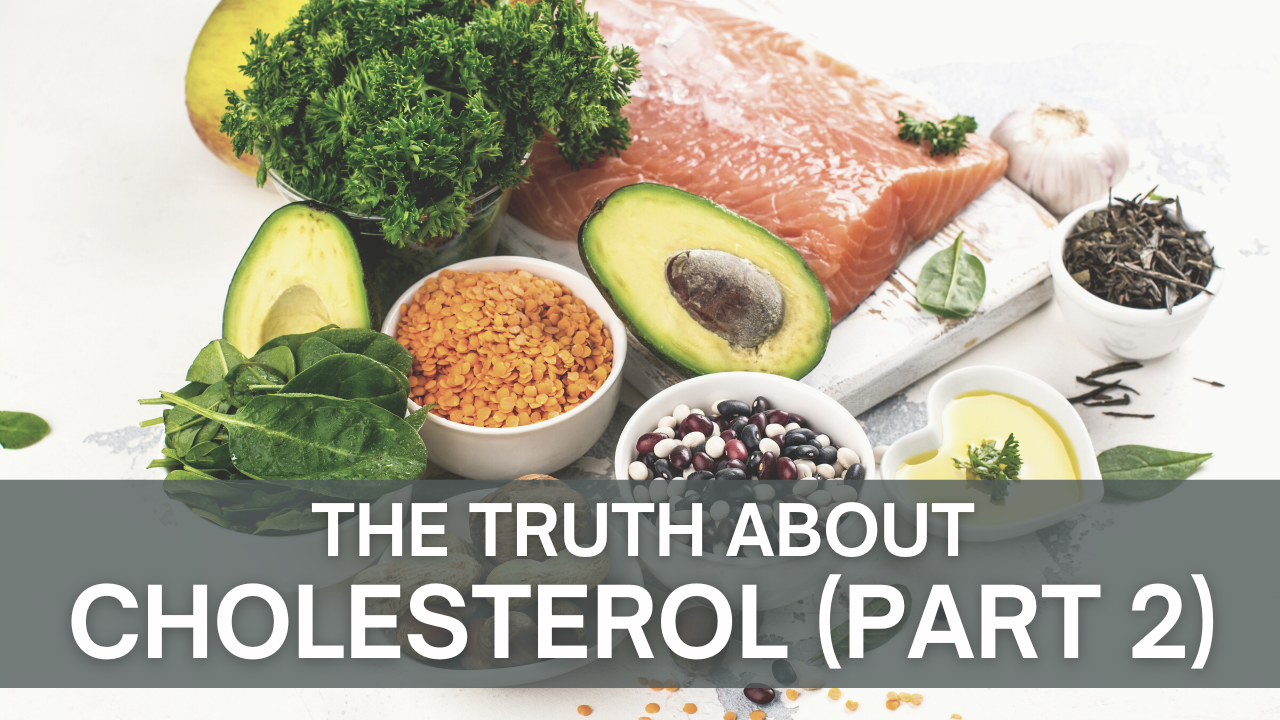Lies Your Doctor Told You: Cholesterol is BAD (Part 2)

Is Cholesterol really the BAD GUY?
Cholesterol is a type of lipid, or fat, that is found in every cell of the human body. It has been demonized as a major contributor to heart disease and stroke, but the truth is that cholesterol is essential for many vital functions in the body.
In this blog post, we will explore the benefits of cholesterol and why it is important for overall health.
-
Cholesterol is Essential for Hormone Production
Cholesterol is a key building block for the production of hormones such as estrogen, testosterone, and progesterone. These hormones play a vital role in regulating the menstrual cycle, fertility, and many other aspects of reproductive health.
-
Cholesterol is Important for Brain Function
The brain is made up of approximately 60% fat, and cholesterol is one of the most important fats for brain function. Cholesterol helps to build and maintain the myelin sheath, which is a protective covering that surrounds nerve cells and helps them to communicate with each other.
-
Cholesterol is Necessary for Digestion
Cholesterol plays a key role in the digestion and absorption of dietary fats. Without adequate cholesterol, the body would not be able to absorb essential fatty acids and fat-soluble vitamins such as vitamin A, D, E, and K.
-
Cholesterol is Important for Immune Function
Cholesterol plays an important role in the immune system by helping to produce antibodies that fight off infections and foreign invaders. Additionally, cholesterol helps to produce vitamin D, which is essential for immune system function and overall health.
-
Cholesterol is Crucial for Cell Membrane Integrity
Cholesterol is a vital component of cell membranes, which are the protective barriers that surround every cell in the body. Cholesterol helps to maintain the integrity of these membranes, which is important for cell function and overall health.
Cholesterol has been unfairly demonized as a major contributor to heart disease and stroke. While it is true that high levels of certain types of cholesterol can increase the risk of these conditions, it’s the inflammatory conditions from bad oils and sugar that can develop a body that’s on a dangerous path to heart disease.
Check out our two part episode on this very topic! Listen to Part 1 here and Part 2 here.
It is important to remember that cholesterol is also essential for many vital functions in the body. If you are concerned about your cholesterol levels, it is important to talk to your healthcare provider about the best ways to maintain optimal cholesterol levels while also promoting overall health and wellbeing.
- Cholesterol and Hormone Production - Mueller JW, Gilligan LC, Idkowiak J, et al. The regulation of steroid action by sulfation and desulfation. Endocr Rev. 2015;36(5):526-563. doi:10.1210/er.2015-1024
- Cholesterol and Brain Function - Dietschy JM, Turley SD. Thematic review series: brain Lipids. Cholesterol metabolism in the central nervous system during early development and in the mature animal. J Lipid Res. 2004;45(8):1375-1397. doi:10.1194/jlr.R400004-JLR200
- Cholesterol and Digestion - Hollander D, Rim E. Lipids in the digestive tract and their relation to fat absorption. Am J Clin Nutr. 1968;21(12):1381-1384. doi:10.1093/ajcn/21.12.1381
- Cholesterol and Immune Function - Spady DK, Dietschy JM. Sterol synthesis in vivo in 18 tissues of the squirrel monkey, guinea pig, rabbit, hamster, and rat. J Lipid Res. 1983;24(3):303-315. PMID: 6858838.
- Cholesterol and Cell Membrane Integrity - Vance DE, Vance JE. Biochemistry of Lipids, Lipoproteins and Membranes. Elsevier Science; 2008. ISBN-13: 978-0-444-52783-5.
